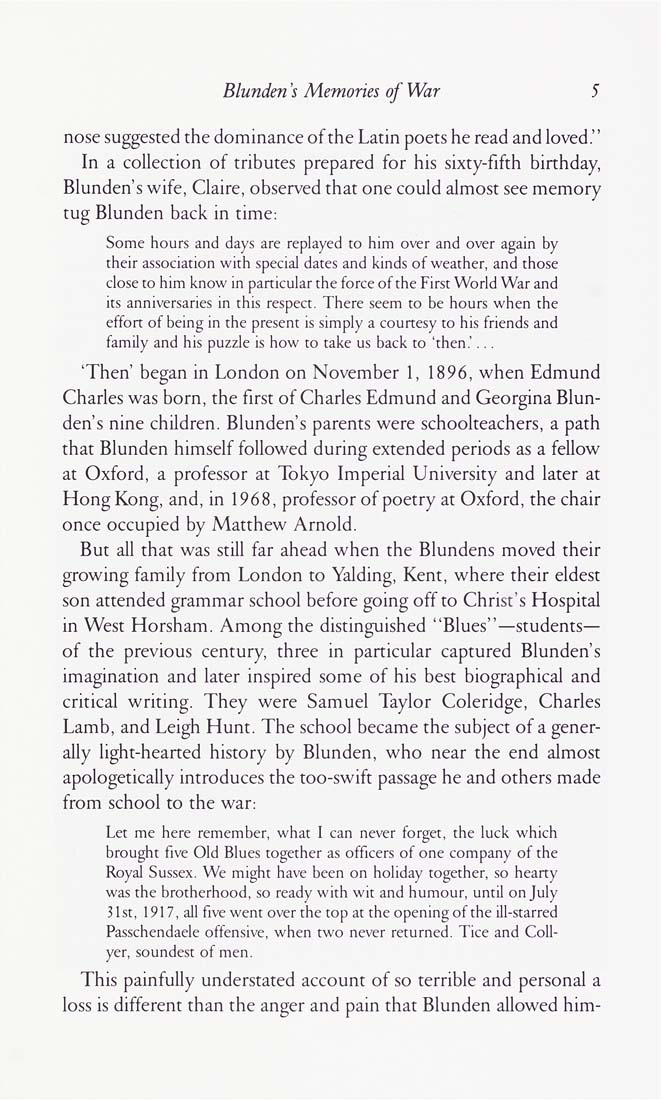Columbia Library columns (v.39(1989Nov-1990May))
(New York : Friends of the Columbia Libraries. )
|
||
|
|
|
|
| v.39,no.2(1990:Feb): Page 5 |

Blunden's Memories of War S nose suggested the dominance of the Latin poets he read and loved." In a collection of tributes prepared for his sixty-fifth birthday, Blunden's wife, Claire, observed that one could almost see memory tug Blunden back in time: Some hours and days are replayed to him over and over again by their association with special dates and kinds of weather, and those close to him know in particular the force of the First World War and its anniversaries in this respect. There seem to be hours when the effon of being in the present is simply a courtesy to his friends and family and his puzzle is how to take us back to 'then.' ... Then' began in London on November 1, 1896, when Edmund Charles was born, the first of Charles Edmund and Georgina Blun¬ den's nine children. Blunden's parents were schoolteachers, a path that Blunden himself followed during extended periods as a fellow at Oxford, a professor at Tokyo Imperial University and later at Hong Kong, and, in 1968, professor of poetry at Oxford, the chair once occupied by Matthew Arnold. But all that was still far ahead when the Blundens moved their growing family from London to Yalding, Kent, where their eldest son attended grammar school before going off to Christ's Hospital in West Horsham. Among the distinguished "Blues"—students— of the previous century, three in particular captured Blunden's imagination and later inspired some of his best biographical and critical writing. They were Samuel Taylor Coleridge, Charles Lamb, and Leigh Hunt. The school became the subject of a gener¬ ally light-hearted history by Blunden, who near the end almost apologetically introduces the too-swift passage he and others made from school to the war: Let me here remember, what I can never forget, the luck which brought five Old Blues together as officers of one company of the Royal Sussex. We might have been on holiday together, so hearty was the brotherhood, so ready with wit and humour, until on July 31st, 1917, all five went over the top at the opening of the ill-starred Passchendaele offensive, when two never returned. Tice and Coll- yer, soundest of men. This painfully understated account of so terrible and personal a loss is different than the anger and pain that Blunden allowed him- |
| v.39,no.2(1990:Feb): Page 5 |







